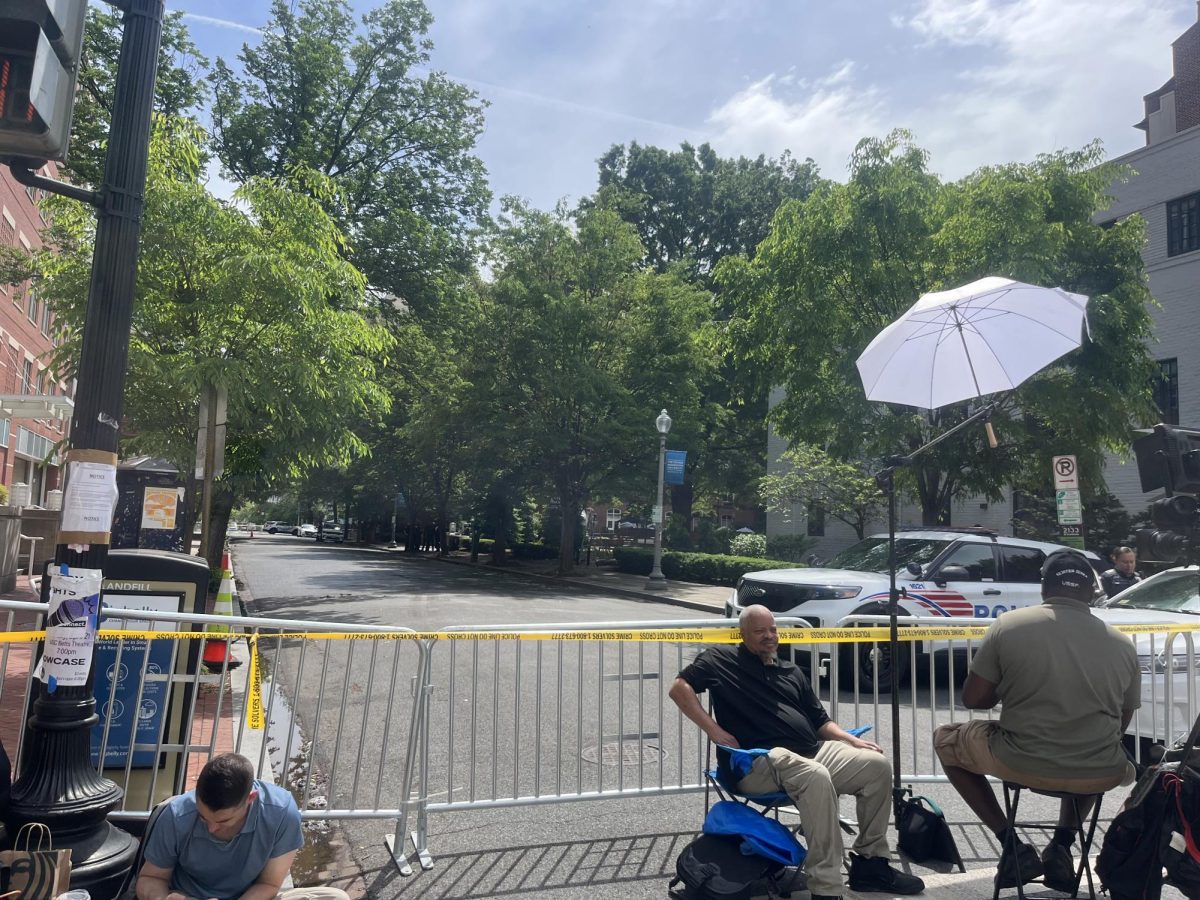The Fall 2022 Georgetown Startup Accelerator (GSA) cohort presented their early-stage startup companies to Georgetown students, faculty and staff at this year’s edition of Demo Day.
Demo Day was hosted Nov. 8 by Georgetown Entrepreneurship, a program within the McDonough School of Business (MSB), as the annual culmination of the GSA program, a entrepreneurship-based cohort. At the event, led by the founding director of the Georgetown Entrepreneurship Initiative Jeff Reid and with opening remarks from co-founder and chief mission officer of Health-Ade Kombucha Daina Trout (NHS ’03), 10 companies founded by Georgetown graduates showcased startups they had worked on over the course of the program.

The 10 startup companies in the Fall 2022 cohort were AI Priori, Sweet M’lk, DGo-On, Keep Company, Budeli, Parrotfish, Power & Pearls, Ridge, Student Global Ambassador Program and Toperty.
At the event, each member of this year’s GSA cohort shared a four-minute pitch of their company. Each company had a distinct mission, including female empowerment, environmental sustainability and nutrition in schools. The pitches were each pre-recorded and paired with a slideshow presentation to better represent the goals of the company and the progress it had made.
After each founder presented their pitches, breakout rooms were created for each company and attendees were able to move throughout each room to speak to the founder and ask questions regarding their startup.
Emily Yu (SFS ’01), founder of AI Priori, an information technology company focusing on AI data service, presented the first pitch.
According to Yu, the company’s data collection programs will benefit community-based projects.
“To help foundations make more effective and evidence-based decisions, we’ve created an online platform to help program officers review their text-based documents and help them find the most relevant information on their most commonly asked questions, like what helped a program succeed, or what was an obstacle?” Yu said at the event. “This is particularly helpful when it comes to parsing community stories and other qualitative information.”
Julian Uribe (LAW ’20), co-founder of Toperty, a Colombian mortgage financial technology company that seeks to make homeownership more accessible in Latin America, delivered the final pitch of the event.
Toperty will help people in Latin America navigate an expensive and daunting housing market, Uribe said.
“So how do we help? First, we buy properties below market price using technology and through partnership with local developers,” Uribe said at the event. “Then, Maria chooses her dream house, she moves in, and she starts paying market rent plus some extra equity contributions, so she’s gonna be buying homeownership from us over time. And after three to five years, when she reaches 20% homeownership, she finishes the purchase through a traditional mortgage.”
In his opening remarks, Reid said Demo Day serves as evidence of the accelerator program’s growth throughout the past five years.
“So about five years ago, we made a strategic decision to support alumni as they build their companies,” Reid said at the event. “We now have the Georgetown Venture Lab, which is located in Washington D.C. and has had over 100 companies as its members over its four-year history, and a few years ago, we knew, we recognized, that there were so many alumni entrepreneurs who are not located in D.C., who we might be able to serve through virtual programming.”
Trout said that she and her co-founders transitioned from the pharmaceutical industry into entrepreneurship in order to have more innovative careers.
“We were feeling unfulfilled,” Trout said at the event. “We were feeling like we had more to give, we wanted to build something we could be proud of, we were feeling incredibly itchy to start something on our own.”
Trout said budding entrepreneurs must take a leap of faith into the market in order to test the viability of their product.
“Get in the game,” Trout said. “I think too much planning can hold you back and I see it all the time with founders that are trying to perfect something, and meanwhile the game is being played out there.”



















